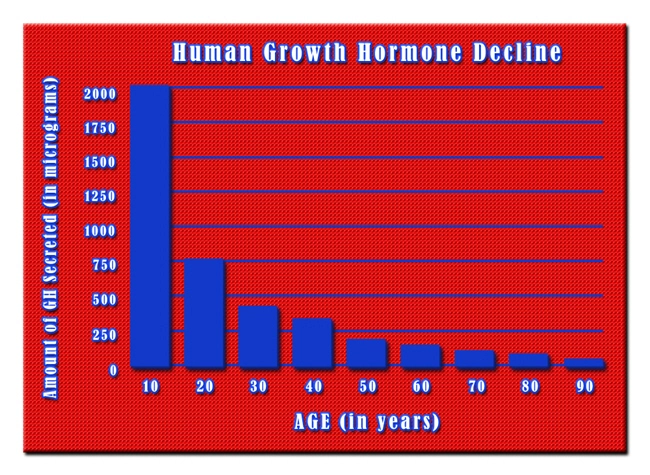
Introduction
Erectile dysfunction (ED), commonly manifesting as soft erections, is a prevalent issue among American males, particularly those with type 2 diabetes. The correlation between diabetes and ED is well-documented, with pathophysiological mechanisms intertwining to exacerbate the condition. Understanding these mechanisms and exploring effective treatment options is crucial for improving the quality of life for affected individuals. This article delves into the complex relationship between soft erections and type 2 diabetes, offering insights into management strategies tailored for American males.
Pathophysiological Mechanisms Linking Diabetes and Soft Erections
The pathophysiological mechanisms that contribute to soft erections in men with type 2 diabetes are multifaceted. Primarily, diabetes leads to vascular complications that impair blood flow to the penile tissues. Endothelial dysfunction, a hallmark of diabetes, results in reduced nitric oxide availability, which is essential for achieving and maintaining an erection. Additionally, diabetes-induced neuropathy can damage the nerves responsible for penile erection, further complicating the issue.
Hyperglycemia, a common feature of diabetes, also contributes to oxidative stress and inflammation, which can damage the vascular and neural structures involved in erectile function. Moreover, hormonal imbalances, such as reduced testosterone levels often seen in diabetic men, can exacerbate ED. These combined factors create a challenging environment for maintaining erectile health, necessitating a comprehensive approach to management.
Diagnosis and Assessment of Soft Erections in Diabetic Men
Accurate diagnosis and assessment are critical for managing soft erections in men with type 2 diabetes. A thorough medical history, including a detailed account of diabetic control and medication use, is essential. Physical examinations and laboratory tests, such as blood glucose levels, HbA1c, lipid profiles, and testosterone levels, provide valuable insights into the patient's overall health and potential contributors to ED.
Specialized tests, such as penile Doppler ultrasound, can evaluate blood flow to the penis, while nocturnal penile tumescence tests can assess the presence of erections during sleep. These diagnostic tools help healthcare providers tailor treatment plans to the individual needs of American males with diabetes.
Treatment Options for Soft Erections in Diabetic Men
Managing soft erections in men with type 2 diabetes involves a multifaceted approach that addresses both the underlying diabetes and the specific issues related to ED. The cornerstone of treatment is optimal glycemic control, which can mitigate the vascular and neural damage associated with diabetes. Lifestyle modifications, such as adopting a healthy diet, engaging in regular physical activity, and quitting smoking, are crucial for improving overall health and erectile function.
Pharmacological interventions, such as phosphodiesterase type 5 (PDE5) inhibitors like sildenafil, tadalafil, and vardenafil, are commonly used to treat ED in diabetic men. These medications enhance the effects of nitric oxide, facilitating improved blood flow to the penis. However, their efficacy may be reduced in men with severe diabetes-related vascular damage.
For those who do not respond to oral medications, alternative treatments such as vacuum erection devices, penile injections, or intraurethral suppositories may be considered. In severe cases, surgical options like penile implants may be necessary. Additionally, addressing hormonal imbalances with testosterone replacement therapy can be beneficial for some men.
Psychological and Supportive Interventions
The psychological impact of ED should not be underestimated, as it can lead to stress, anxiety, and relationship issues. Counseling and sex therapy can be valuable components of treatment, helping men and their partners navigate the emotional challenges associated with ED. Support groups and educational resources can also provide valuable support and information for American males dealing with this condition.
Conclusion
Soft erections in American males with type 2 diabetes represent a complex interplay of pathophysiological mechanisms that require a comprehensive approach to management. By understanding the underlying causes and implementing a tailored treatment plan that addresses both the diabetes and ED, healthcare providers can significantly improve the quality of life for affected individuals. Through a combination of lifestyle modifications, pharmacological interventions, and psychological support, men with diabetes can regain confidence and enjoy a fulfilling sexual life.
Contact Us Today For A Free Consultation
Dear Patient,
Once you have completing the above contact form, for security purposes and confirmation, please confirm your information by calling us.
Please call now: 1-800-380-5339.
Welcoming You To Our Clinic, Professor Tom Henderson.

- Decoding the Enigma of Soft Erections: A Comprehensive Exploration [Last Updated On: February 25th, 2025] [Originally Added On: February 25th, 2025]
- Unveiling the Complexities behind Reduced Virility: A Journey into the Science of Soft Erections [Last Updated On: February 26th, 2025] [Originally Added On: February 26th, 2025]
- Broadening the Masculine Spectrum: Navigating Soft Erections Confidently [Last Updated On: February 27th, 2025] [Originally Added On: February 27th, 2025]
- Transforming Sexual Health: Enhancing Male Virility through Holistic Lifestyle Adjustments [Last Updated On: February 28th, 2025] [Originally Added On: February 28th, 2025]
- Unheard Voices: Understanding and Navigating Soft Erections [Last Updated On: February 28th, 2025] [Originally Added On: February 28th, 2025]
- Understanding the Nexus: Psychological Stress and Its Impact on Erection Function [Last Updated On: March 1st, 2025] [Originally Added On: March 1st, 2025]
- Demystifying Men's Health: Understanding Erectile Resilience and its Multifaceted Dimensions [Last Updated On: March 2nd, 2025] [Originally Added On: March 2nd, 2025]
- Enhancing Erectile Function Through Exercise: Understanding the Role of Physical Activity in Improving Sexual Health and Erection Quality [Last Updated On: March 3rd, 2025] [Originally Added On: March 3rd, 2025]
- Nutrition's Role in Enhancing Male Erectile Function and Health [Last Updated On: March 4th, 2025] [Originally Added On: March 4th, 2025]
- Soft Erections in Aging Men: Causes, Diagnosis, and Effective Management Strategies [Last Updated On: March 5th, 2025] [Originally Added On: March 5th, 2025]
- Exploring the Link Between Sleep Quality and Erectile Function in Men [Last Updated On: March 5th, 2025] [Originally Added On: March 5th, 2025]
- Managing Mild Erectile Dysfunction: Strategies for Enhancing Intimacy and Well-being [Last Updated On: March 6th, 2025] [Originally Added On: March 6th, 2025]
- Enhancing Male Sexual Health: The Role of Weight Loss in Combating Soft Erections [Last Updated On: March 6th, 2025] [Originally Added On: March 6th, 2025]
- Optimizing Male Hormones for Sexual Health: Balancing Testosterone and Estrogen Dynamics [Last Updated On: March 7th, 2025] [Originally Added On: March 7th, 2025]
- The Vascular Link: Understanding Blood Flow in Erectile Dysfunction and Vascular Health [Last Updated On: March 8th, 2025] [Originally Added On: March 8th, 2025]
- The Intersection of Cardiovascular Health and Erectile Function: Lifestyle Strategies for Men's Health [Last Updated On: March 9th, 2025] [Originally Added On: March 9th, 2025]
- Enhancing Male Sexual Health: The Role of Meditation and Mindfulness in Combating Soft Erections [Last Updated On: March 9th, 2025] [Originally Added On: March 9th, 2025]
- Debunking Myths: The Truth About Soft Erections in American Men [Last Updated On: March 14th, 2025] [Originally Added On: March 12th, 2025]
- Navigating the Impact of Medications on Male Sexual Health: Understanding Drug-Induced Erectile Challenges [Last Updated On: March 13th, 2025] [Originally Added On: March 13th, 2025]
- Mastering Stress: Strategies to Enhance Male Sexual Performance and Combat Soft Erections [Last Updated On: March 15th, 2025] [Originally Added On: March 15th, 2025]
- Smoking's Impact on Erectile Health: Understanding and Overcoming Soft Erections [Last Updated On: March 17th, 2025] [Originally Added On: March 17th, 2025]
- Diagnosing Soft Erections: Comprehensive Approaches for American Males' Urological Health [Last Updated On: March 18th, 2025] [Originally Added On: March 18th, 2025]
- Pelvic Floor Exercises: Enhancing Men's Sexual Health and Overall Wellness [Last Updated On: March 18th, 2025] [Originally Added On: March 18th, 2025]
- Alcohol's Impact on Erection Quality: Insights and Management Strategies [Last Updated On: March 18th, 2025] [Originally Added On: March 18th, 2025]
- Soft Erections in Young Men: Causes, Impacts, and Holistic Management Strategies [Last Updated On: March 18th, 2025] [Originally Added On: March 18th, 2025]
- Vitamins and Minerals: Enhancing Erection Quality in American Men Naturally [Last Updated On: March 19th, 2025] [Originally Added On: March 19th, 2025]
- Herbal Remedies for Enhancing Erectile Health in American Males [Last Updated On: March 19th, 2025] [Originally Added On: March 19th, 2025]
- Understanding and Managing Soft Erections: Causes, Diagnosis, and Treatment Options [Last Updated On: March 20th, 2025] [Originally Added On: March 20th, 2025]
- Counseling's Role in Treating Soft Erections: A Holistic Approach [Last Updated On: March 20th, 2025] [Originally Added On: March 20th, 2025]
- Soft Erections: Understanding, Communicating, and Overcoming ED Together [Last Updated On: March 21st, 2025] [Originally Added On: March 21st, 2025]
- Soft Erections and Mental Health: Strategies for American Men [Last Updated On: March 21st, 2025] [Originally Added On: March 21st, 2025]
- Work Stress Impact on American Males' Sexual Health: Strategies and Solutions [Last Updated On: March 21st, 2025] [Originally Added On: March 21st, 2025]
- Managing Soft Erections: Diet, Exercise, Stress, Sleep, and Medical Care [Last Updated On: March 22nd, 2025] [Originally Added On: March 22nd, 2025]
- Understanding Soft Erections: Causes, Impacts, and Holistic Treatment Options for American Males [Last Updated On: March 23rd, 2025] [Originally Added On: March 23rd, 2025]
- Genetic Factors in Erectile Dysfunction: Understanding Soft Erections in American Men [Last Updated On: March 23rd, 2025] [Originally Added On: March 23rd, 2025]
- Nitric Oxide's Role in Erections: Understanding and Enhancing Function [Last Updated On: March 23rd, 2025] [Originally Added On: March 23rd, 2025]
- Managing Soft Erections: Behavioral Strategies for Improved Sexual Health [Last Updated On: March 23rd, 2025] [Originally Added On: March 23rd, 2025]
- Exploring Alternative Medicine for Enhanced Erectile Health in American Males [Last Updated On: March 23rd, 2025] [Originally Added On: March 23rd, 2025]
- Overcoming Soft Erections: Success Stories and Strategies for American Men [Last Updated On: March 23rd, 2025] [Originally Added On: March 23rd, 2025]
- Redefining Sexual Success: Embracing Vulnerability and Holistic Health for Confidence [Last Updated On: March 23rd, 2025] [Originally Added On: March 23rd, 2025]
- Soft Erections vs. Erectile Dysfunction: Understanding Differences and Solutions for Men [Last Updated On: March 24th, 2025] [Originally Added On: March 24th, 2025]
- Physical Therapy's Role in Treating Soft Erections Among American Males [Last Updated On: March 24th, 2025] [Originally Added On: March 24th, 2025]
- PDE5 Inhibitors: Revolutionizing ED Treatment for American Males [Last Updated On: March 24th, 2025] [Originally Added On: March 24th, 2025]
- Innovative Technologies and Therapies for Treating Soft Erections in American Males [Last Updated On: March 24th, 2025] [Originally Added On: March 24th, 2025]
- Obesity and Soft Erections: Enhancing Sexual Health Through Weight Management [Last Updated On: March 24th, 2025] [Originally Added On: March 24th, 2025]
- Exploring Alternative Therapies for Erectile Dysfunction: A Holistic Approach [Last Updated On: March 24th, 2025] [Originally Added On: March 24th, 2025]
- Biofeedback Therapy: Enhancing Erectile Control in American Males with Soft Erections [Last Updated On: March 25th, 2025] [Originally Added On: March 25th, 2025]
- Economic Impact of Soft Erections on American Men's Quality of Life and Finances [Last Updated On: March 25th, 2025] [Originally Added On: March 25th, 2025]
- Heart Health and Erections: Understanding the Cardiovascular Connection [Last Updated On: March 25th, 2025] [Originally Added On: March 25th, 2025]
- Prostate Health's Impact on Soft Erections: Insights and Management for American Men [Last Updated On: March 25th, 2025] [Originally Added On: March 25th, 2025]
- Managing Soft Erections: Preparing for Doctor Visits and Understanding Treatment Options [Last Updated On: March 25th, 2025] [Originally Added On: March 25th, 2025]
- Chronic Inflammation's Impact on Sexual Health: Mechanisms and Management Strategies [Last Updated On: March 25th, 2025] [Originally Added On: March 25th, 2025]
- Understanding and Treating Soft Erections: Causes, Diagnosis, and Options for American Males [Last Updated On: March 26th, 2025] [Originally Added On: March 26th, 2025]
- Sleep Disorders and Soft Erections: Impacts and Management Strategies for Men [Last Updated On: March 26th, 2025] [Originally Added On: March 26th, 2025]
- Soft Erections and Metabolic Syndrome: A Critical Link in American Males [Last Updated On: March 26th, 2025] [Originally Added On: March 26th, 2025]
- Understanding and Overcoming Soft Erections: Impact, Intimacy, and Solutions [Last Updated On: March 26th, 2025] [Originally Added On: March 26th, 2025]
- Digital Health Solutions Transforming Erectile Health Management for American Men [Last Updated On: March 26th, 2025] [Originally Added On: March 26th, 2025]
- Stress Management Techniques to Improve Erectile Function in American Males [Last Updated On: March 26th, 2025] [Originally Added On: March 26th, 2025]
- Cardiovascular Exercise Enhances Erection Quality in American Males [Last Updated On: March 26th, 2025] [Originally Added On: March 26th, 2025]
- Environmental Toxins and Their Impact on Male Erectile Health in America [Last Updated On: March 26th, 2025] [Originally Added On: March 26th, 2025]
- Understanding Soft Erections: Causes, Physiology, and Treatment Options for American Men [Last Updated On: March 27th, 2025] [Originally Added On: March 27th, 2025]
- Hormonal Health and Erections: A Comprehensive Guide for American Men [Last Updated On: March 27th, 2025] [Originally Added On: March 27th, 2025]
- Medication Side Effects and Soft Erections: Causes, Management, and Solutions [Last Updated On: March 27th, 2025] [Originally Added On: March 27th, 2025]
- Innovative Solutions for Erection Challenges: Vacuum Pumps and Beyond [Last Updated On: March 27th, 2025] [Originally Added On: March 27th, 2025]
- Understanding Soft Erections: Causes, Treatments, and Breaking Stigmas [Last Updated On: March 28th, 2025] [Originally Added On: March 28th, 2025]
- Superfoods Boost Vascular Health, Enhancing Erectile Function in American Males [Last Updated On: March 28th, 2025] [Originally Added On: March 28th, 2025]
- Managing Soft Erections: A Mindfulness Approach for American Men [Last Updated On: March 28th, 2025] [Originally Added On: March 28th, 2025]
- Overcoming Soft Erections: Psychological Strategies and Self-Esteem Enhancement [Last Updated On: March 29th, 2025] [Originally Added On: March 29th, 2025]
- Enhancing Sexual Stamina and Managing Soft Erections: Techniques and Strategies [Last Updated On: March 29th, 2025] [Originally Added On: March 29th, 2025]
- Sedentary Lifestyles and Erection Quality: Benefits of Physical Activity for American Males [Last Updated On: March 30th, 2025] [Originally Added On: March 30th, 2025]
- Nerve Health's Crucial Role in Enhancing Erectile Function for American Males [Last Updated On: March 30th, 2025] [Originally Added On: March 30th, 2025]
- Redefining Masculinity: Embracing Soft Erections and Enhancing Sexual Confidence [Last Updated On: March 30th, 2025] [Originally Added On: March 30th, 2025]
- Innovative Research and Future Prospects in Treating Soft Erections [Last Updated On: April 2nd, 2025] [Originally Added On: April 2nd, 2025]
- Lifestyle Changes to Enhance Erection Quality and Combat Erectile Dysfunction [Last Updated On: April 4th, 2025] [Originally Added On: April 4th, 2025]
- Soft Erections: Understanding Impact and Navigating Intimacy in American Relationships [Last Updated On: April 4th, 2025] [Originally Added On: April 4th, 2025]
- Vascular Health's Crucial Role in Enhancing Erection Quality for American Males [Last Updated On: April 6th, 2025] [Originally Added On: April 6th, 2025]
- Soft Erections: Impact on Mental Health, Relationships, and Quality of Life in American Men [Last Updated On: April 6th, 2025] [Originally Added On: April 6th, 2025]
- Cortisol's Impact on Erectile Performance in American Males: Causes and Management [Last Updated On: April 7th, 2025] [Originally Added On: April 7th, 2025]
- Breaking Silence on Soft Erections: Fostering Open Dialogue for Healthier Relationships [Last Updated On: April 7th, 2025] [Originally Added On: April 7th, 2025]
- Psychotherapy's Role in Treating Emotional Effects of Soft Erections in American Males [Last Updated On: April 9th, 2025] [Originally Added On: April 9th, 2025]








